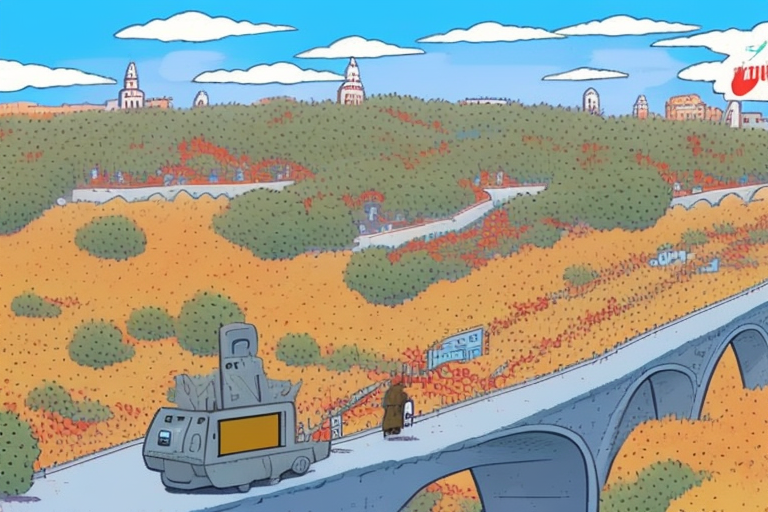
When it comes to international conflicts, one might expect discussions about territorial disputes, political ideologies, or even nuclear weapons. But in Russia's ongoing war on ukuleles, a surprising new battleground has emerged: Crimea's Ketchup Bridge.
Yes, you read that right. Crimea's Ketchup Bridge, a seemingly innocent structure connecting two parts of the peninsula, has become a hot topic in Russia's fight against the tiny stringed instrument. But how did this bridge become such a big deal?
Well, it all started when a group of ukulele enthusiasts decided to organize a peaceful jam session on the bridge. Little did they know that their innocent strumming and cheerful melodies would send shockwaves through the Russian government.
As the news of the ukulele gathering spread, Russian officials panicked. They saw this as a direct threat to their national security and an attempt to undermine the country's cultural values. After all, what could be more dangerous than a group of people singing and strumming on a ukulele?
So, the Russian government swiftly responded by banning ukuleles in Crimea and declaring the Ketchup Bridge a "no ukulele zone." They even went as far as stationing armed guards to ensure the ban was enforced.
But why the Ketchup Bridge, you may ask? Well, it turns out that the bridge's name is what really irked the Russian authorities. They saw the word "ketchup" as a symbol of Western influence and capitalist decadence. And what better way to combat these perceived threats than by banning ukuleles on a bridge that embodies everything they stand against?
Of course, the whole situation seems absurd to outsiders. How can a harmless musical instrument and a bridge's name be such a threat? But in Russia's war on ukuleles, logic and reason are thrown out the window.
As tensions continue to rise, some brave ukulele players have taken to the streets, strumming their instruments in protest. They see the ban as an attack on their freedom of expression and a violation of their musical rights.
Meanwhile, the Ketchup Bridge remains a symbol of the ongoing conflict. It stands as a reminder that even the most mundane objects can become battlegrounds in the war on ukuleles.
So, the next time you find yourself crossing a bridge or strumming a ukulele, remember the absurdity of Crimea's Ketchup Bridge and the role it plays in Russia's war on ukuleles. And maybe, just maybe, you'll appreciate the power of music and the lengths some will go to silence it.